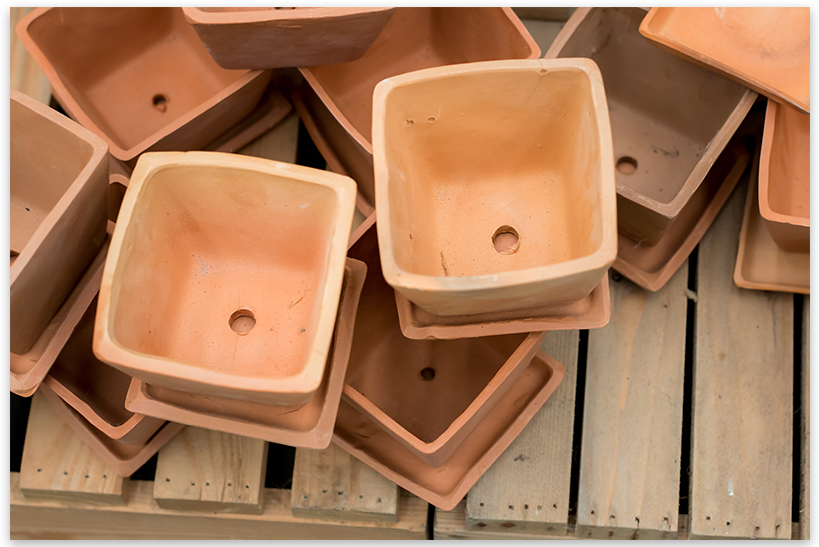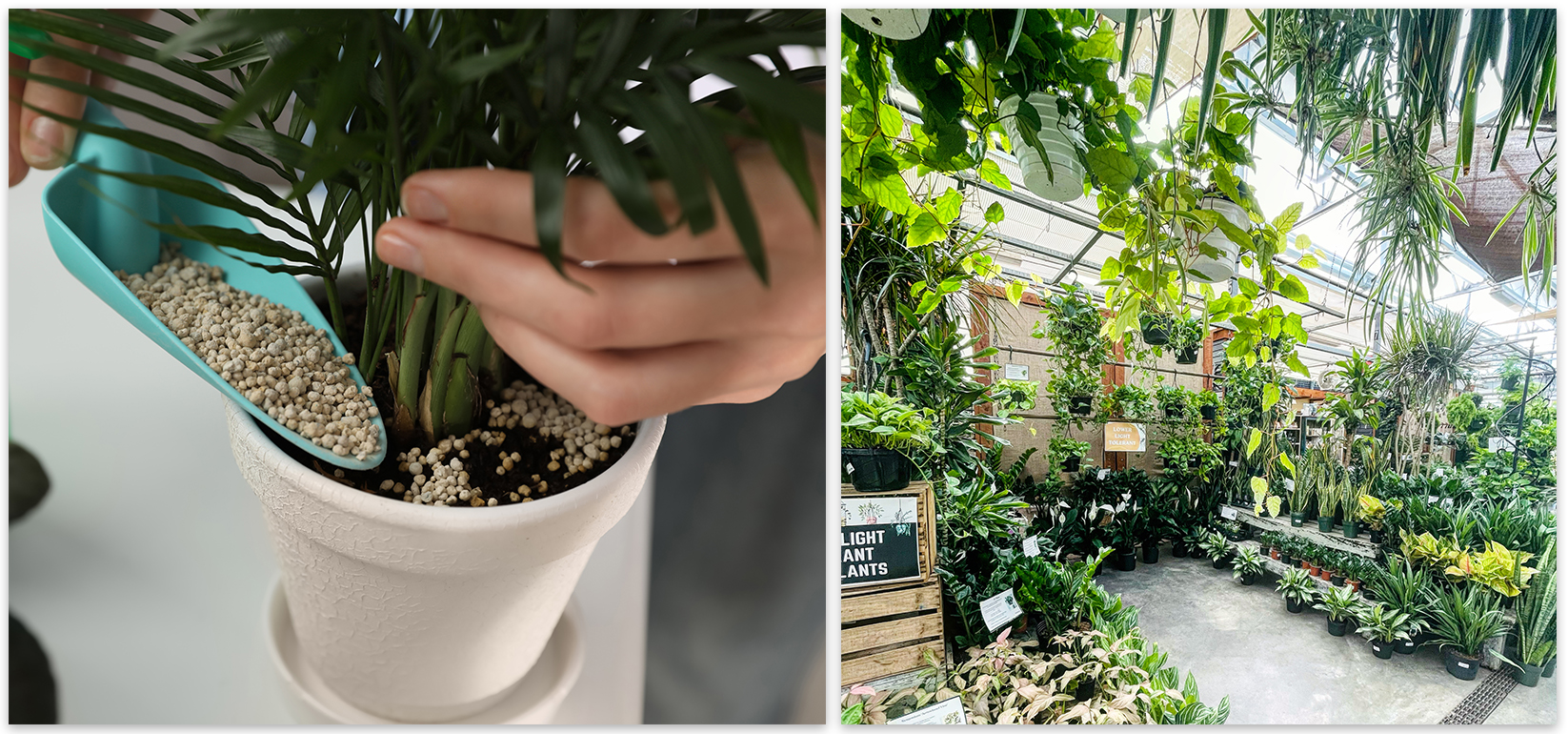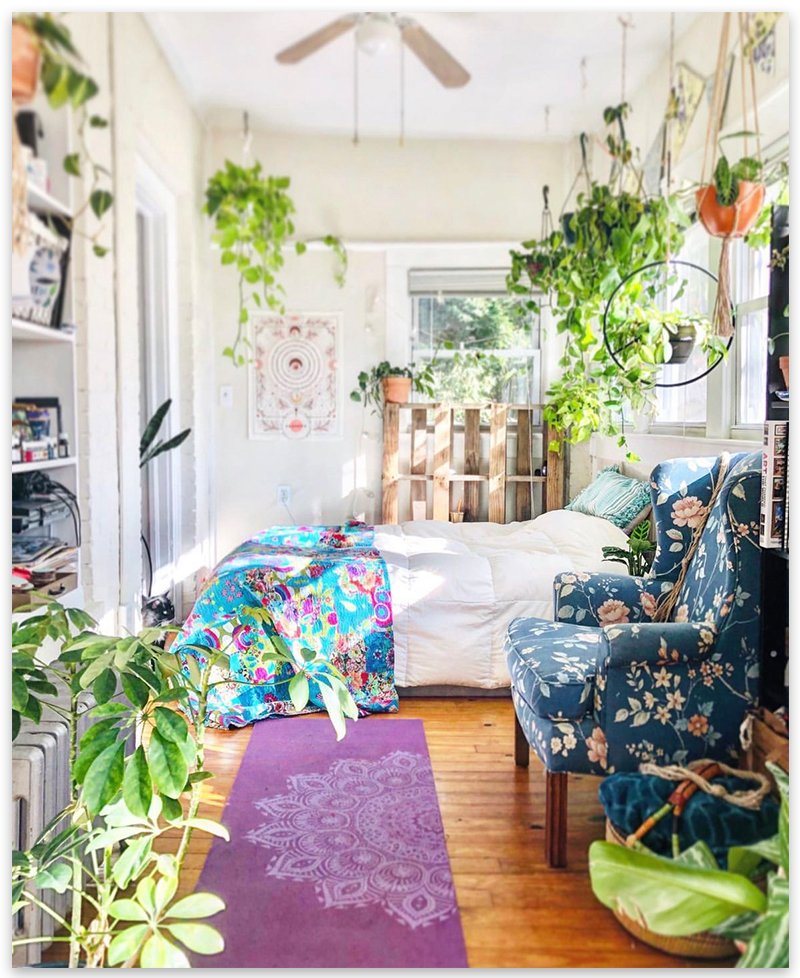Outside In
Outside In: Breathe new life into your home décor with vibrant houseplants
Western North Carolina is known for its distinct and beautiful seasonal changes. To hone your green thumb in a more climate-controlled environment, try incorporating some greenery inside your home. Plants make a great way to refresh your home’s style sans those seasonal highs and lows.
Many studies have shown that incorporating houseplants into your home décor can even provide health benefits. Experts say that houseplants can improve the air quality of your home, as well as provide psychological benefits such as a reduction in stress and a feeling of comfort. In 1995, biologist Edward O. Wilson coined the term biophilia. The biophilia hypothesis states that human beings have an innate desire to be around and be in tune with nature, so it’s no surprise that adding some greenery indoors is now a blossoming design trend.
Although our region has stunningly warm temperatures in late spring and summer, winters can bring about a brutal cold that many plants can’t handle. Indoor plants stay vibrant year-round, protected from the harsh winters, but they still require care. June Jolley, a horticulturist at the North Carolina Arboretum and resident instructor on caring for houseplants, offers helpful tips on sharing your space with plants. There are three key factors that can affect which plants should go where in terms of design: the humidity levels in your home, the amount of natural light available, and the time and effort you can dedicate to your plants.
Humidity
Many plants need a lot of moisture in the air in order to stay hydrated. “If, like me,” says Jolley, “you heat with wood, then that’s not a good environment for houseplants.” For this reason, kitchens and bathrooms generally make for the best locations for plant health, especially for species that thrive in high humidity, like African violets, ferns, or palms. For low-humidity rooms, succulents and peperomias make for ideal choices. Of course, there are ways to increase the humidity in rooms other than the kitchen and bath. Place small rocks in a saucer or plate and add a bit of water to it, then set your plant on top of the rocks and water, but do not submerge. “As the water evaporates, it will provide some extra humidity,” Jolley explains.

Insider Tip: When shopping for stylish planters, make sure you grab one with a drainage hole in the bottom to prevent overwatering.
Natural Lighting
Plants require varying amounts of sunlight in order to create sugars for food, so setting up your indoor oasis near a window or skylight can help them stay green and perky. On the other hand, too much sun can also be damaging to plants. “South-facing windows can actually be too sunny for plants, so you may need to move them away from these windows some. And in the wintertime, you certainly don't want your plants touching the windows. If the pane freezes or chills, it can damage the plant,” Jolley warns. Look for spaces in your home that are near natural sunlight, but not directly touching a window. If no natural lighting is available, try setting up a grow light nearby—there are stylish and affordable options that can complement your décor.
Care
Certain plants require more care than others; depending on how much time and experience you have, some options might be better for your style. “Some people want to overwater—that’s the number one leading cause of houseplant death,” Jolley stresses. For beginners, Jolley recommends options like snake plants and succulents, which don’t require much light and can go for extended periods without water. And, they're as stunning as they are versatile. Plants like ficuses (which Jolley humorously describes as dramatic), palms, and certain types of orchids require maintaining a specific care regimen that is more time-consuming and precise. There are more than 400 species of houseplants, all with a variety of maintenance; visit your local plant store to check out the many options.

(Left) Insider Tip: Add a bit of fertilizer to your indoor plants—this will help them grow and stay healthy; (Right) B.B. Barnes.
Shop Local
Find your next home accent at these local plant stores
Wilted Lily Salon & Plant Shop
738 State Farm Road, Suite B, Boone;
(828) 964-7117
wiltedlilysalonandplantshop.com
B.B. Barnes
3377 Sweeten Creek Road, Arden
(828) 650-7300; bbbarns.com
Palm and Pine
178-B Westwood Place, Asheville
(828) 505-2232; palmandpine.com
Flower Pot Ranch
67 West Whitehead Street, Sparta
(336) 372-4949
flower-pot-ranch.square.site
Life Doesn’t Succ
221 1st Avenue NW, Suite 106, Hickory
(828) 332-3091; lifedoesntsucc.com
